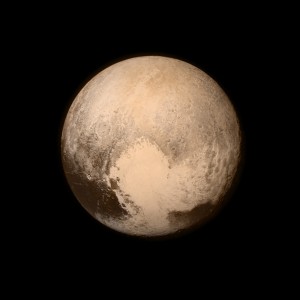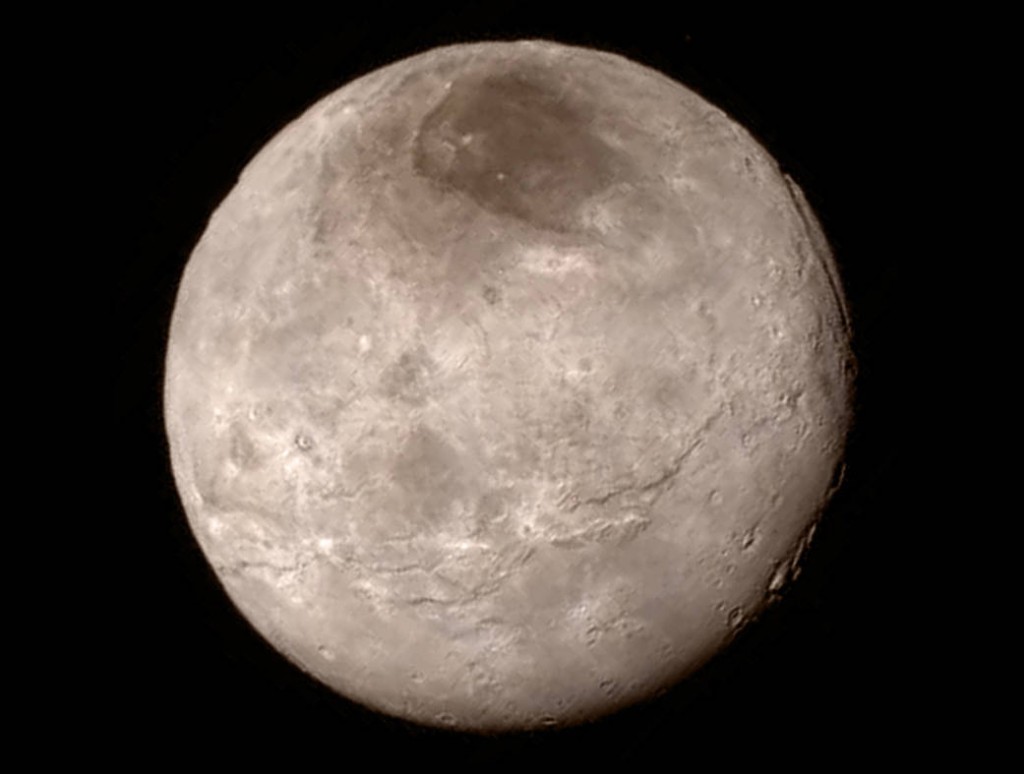LOOK: NASA marks 5th year since historic Pluto flyby with love letter

Pluto, seen from the New Horizons spacecraft. Image: NASA via AP
With a short love letter, the National Aeronautics and Space Administration (NASA) marked the 5th anniversary of the Pluto flyby of its New Horizons spacecraft.
As the historic flight captured the first close-up images of our dwarf neighbor on July 14, 2015, NASA shared with the public its favorite photo to accompany its sweet message.
“Dear Pluto, We love you. Happy 5 year anniversary since our New Horizons spacecraft revealed your complex and beautiful world,” NASA posted on Instagram on July 14.
“To celebrate, we’re showing off one of our favorite pictures from our time together. You are literally GLOWING. Don’t stop that shine! Keep being perfect. Distance has nothing on this relationship, NASA,” the space agency added.
https://www.instagram.com/p/CCo1MjIJbei/
The New Horizons spacecraft managed to take photos of Pluto after around 10 years of voyage, traveling 3 billion miles from home. Fying around 7,800 miles near the dwarf planet, the craft revealed – for the first time ever – the surface of Pluto in high, colored detail.
The flyby was also confirmed that Pluto, despite being an icy world, is not just an inert ball of ice but an “exciting, active and scientifically valuable world,” according to NASA.
Fifteen years in the making, the efforts of the team behind New Horizons bore fruit by also discovering that the dwarf planet was filled with “magnificent landscapes and geology,” such as towering mountains, giant ice sheets, pits, scarps, valleys and terrains “seen nowhere else in the solar system.”
The flyby also gave scientists an opportunity to take a closer look at the biggest of Pluto’s five moons, Charon.

Pluto’s largest moon, Charon, captured by the New Horizons spacecraft. Image: NASA/JHUAPL/SwRI via AP
Among the many discoveries made from the flyby, one of the most famous is Pluto’s “heart,” which is called as it is for its heart-shaped appearance on the dwarf planet’s surface.
This “heart,” officially called the Tombaugh Regio, actually controls Pluto’s atmosphere circulation akin to how Antarctica and Greenland control the Earth’s, according to NASA.
“Nitrogen ices in Pluto’s heart-shaped Tombaugh Regio go through a cycle every day, subliming from ice to vapor in the daytime sunlight and condensing back on the surface during the frigid night. Each round acts like a heartbeat, driving nitrogen winds that circulate around the planet at up to 20 mph,” NASA explained.
While there is still much to know and discover about Pluto, humans can expect to learn about these as NASA promises to remain faithful to its “long-distance relationship” with the planet. JB
RELATED STORIES:
WATCH: NASA releases time-lapse featuring 10 years of the sun